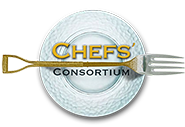Archive for March 2014
“Dirty Dozen” Plus Two: Conventionally Grown Produce To Avoid
Based upon “high pesticide loads,” the Environmental Working Group (EWG) for its most recent “Dirty Dozen” list has named a dozen, plus two, conventionally grown foods to avoid. The EWG advises that “if at all possible”, the items on this list should be purchased organic: (1) Apples, (2) Celery, (3) Cherry Tomatoes, (4) Cucumbers, (5) Grapes, (6) Hot Peppers, (7) imported Nectarines, (8) Peaches, (9) Potatoes, (10) Spinach, (11) Strawberries, (12) Sweet Bell Peppers, (13) Kale/Collard Greens, and (14) Summer Squash.
This health research and advocacy organization suggests that “if you are on a budget and can’t get everything organic, these conventionally grown items are relatively safe choices”: (1) Asparagus, (2) Avocados, (3) Cabbage, (4) Cantaloupe, (5) Sweet Corn (not to be confused with potentially GMO canned corn), (6) Eggplant, (7) Grapefruit, (8) Mangoes, (10) Mushrooms, (11) Onions, (12) Papayas, (13) Pineapples, (14) Sweet Peas, (15) Sweet Potatoes. The EWG has credibility: Back in 1996, under the leadership of Ken Cook (the group’s co-founder who remains its President), the EWG’s research and advocacy resulted in the 1996 Food Quality Protection Act that for the first time required the EPA to consider the dietary risk of pesticides in food on children’s health.
In 2010, the President’s Cancer Panel submitted a landmark report, “Reducing Environmental Cancer Risk: What We Can Do Now” by Dr. La Salle Leffall, Jr. and Dr. Margaret L. Kripke, which exhorted consumers to choose food grown without pesticides or chemical fertilizer. This report, in effect, gave a big boost to the contentions set forth in Maria Rodale’s Organic Manifesto (Rodale, Inc. [distributed to the trade by Macmillan], New York, New York 2010). Ms. Rodale bemoans the use of 4 billion pounds of organophosphate pesticides annually in the United States and the dire health and environmental consequences. The New York Times columnist, Nicholas Kristoff, who saw an advance copy of the report of the Cancer Panel, summarized the findings in an informative column. With the continued advocacy of groups like the EWG (and its easy to digest Dirty Dozen reminders), perhaps, some day, the United States Department of Agriculture (USDA) will amend its rules for organic labeling and permit companies to make the claim that “organic is better for you,” as Ms. Rodale urges.
Approximately 150 farms grow organic fruits and vegetables under contract to Carmel Valley’s Earthbound Farms, which according to Michael Pollan in The Omnivore’s Dilemma (the Penguin Press, New York, New York 2006) has resulted in the elimination of 270,000 pounds of pesticides and 8 million pounds of petrochemical fertilizer each growing season. Not too long ago, I enjoyed a lunch at Earthbound Farms’ organic café. A large display board in the café’s pavilion area listed the 15 fruits and vegetables sold in the U.S. which have the highest amounts of pesticide residues (which certainly reinforced my decision to dine at Earthbound Farm’s organic café at the time). Beware especially of celery which topped Earthbound Farm’s list (in descending order): celery, peaches, strawberries, apples, blueberries (domestic), nectarines, bell peppers, spinach, kale, cherries, potatoes, grapes (imported), lettuce, blueberries (imported), and carrots. In comparing the Earthbound Farm list to the EWG’s “Dirty Dozen, Plus Two,” it’s observed that blueberries (both domestic and imported), spinach, cherries, lettuce and carrots are on the Earthbound Farm’s list of fruits and vegetables with the highest amounts of pesticide residues, but not on the EWG list. Nonetheless, it should be noted that these fruits and vegetables are not on EWG’s “relatively safe” list either.
(Frank W. Barrie, 3/11/14)







